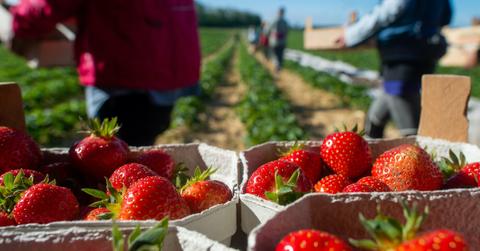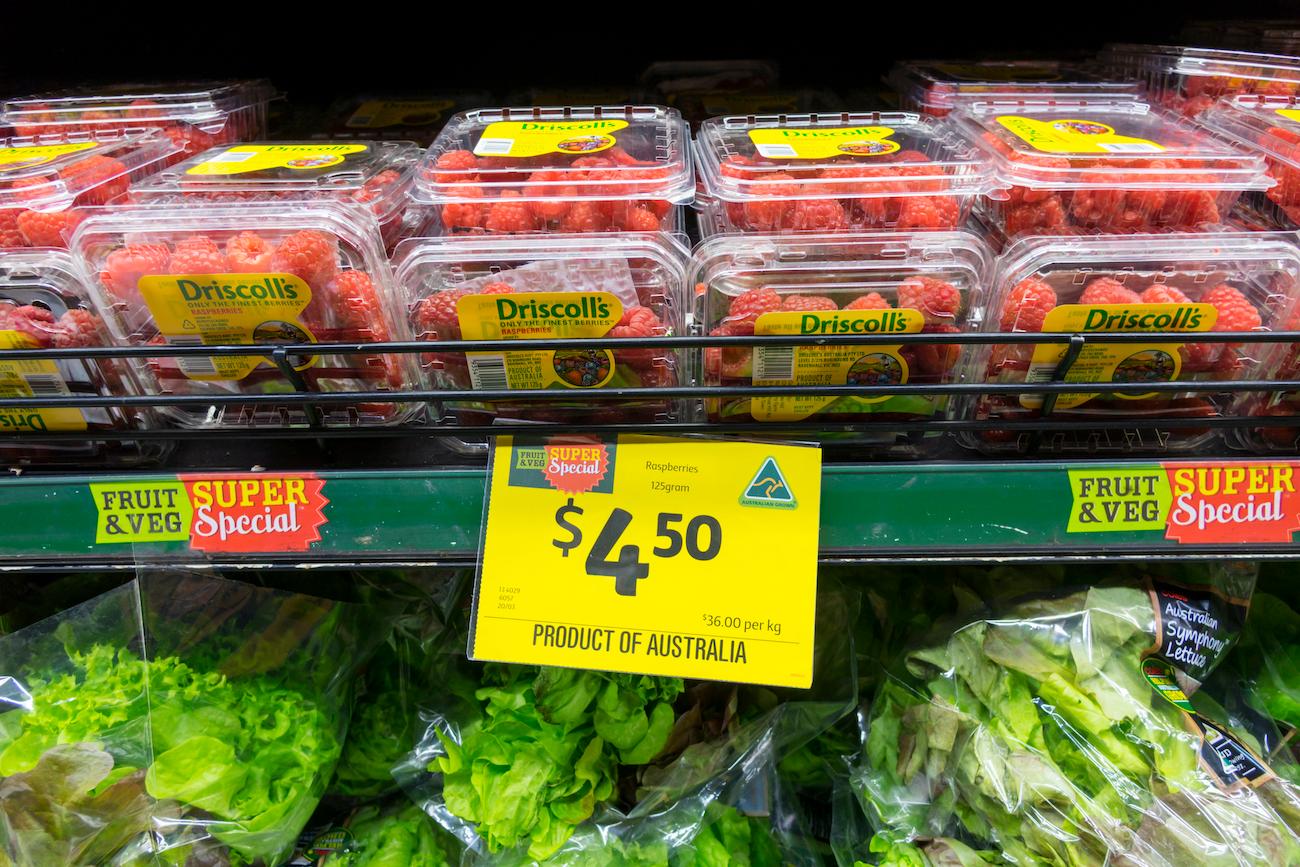To Prevent Food Waste, Berry Company Calls on Government to Provide Financial Aid
Driscoll's is asking the government to provide financial assistance.
Updated April 29 2020, 4:51 p.m. ET

With U.S. unemployment rates at an all-time high during the COVID-19 pandemic — more than 17 million Americans have filed for unemployment in the last month — more people than ever are struggling to put food on the table, and the demand at food banks is increasing.
On the flip side, many of our nation's farmers are currently overwhelmed with excess food, since the demand from restaurants and schools is decreasing. Many have even been throwing away and pouring out surplus products. A natural solution for this imbalance would be for producers to divert their extra food to food banks, so it can feed people in need. However, without government aid, it's impossible for many companies to do so.
One such company is Driscoll's, which is responsible for about one-third of the country's berry market. As the major berry seller's president Soren Bjorn told Business Insider in an interview this week, the company will have to toss 10 to 15 percent of crops from its upcoming peak harvest season if the government does not financially help Driscoll's pay for the labor and transportation required to divert its berries to food banks. Driscoll's hopes to hire 10,000 seasonal field workers in California next month to help with the summer harvest, as well as drivers to transport the berry donations.
"As we hit into the peak berry production in May," Bjorn told Business Insider, "That could be berries that would not get picked and never make it to the market. We think that by far, the best thing that could happen is that that product makes its way to the food banks. And that will require some financial assistance from the government."
As Bjorn explained to Business Insider, he is in conversation with the USDA about making these subsidies happen for crop farms across the country. Without government aid, Bjorn predicted 10 to 15 percent of the Driscoll's summer harvest "will end up in the ditch. It gets wasted."

This plea for government assistance comes a week after Driscoll’s announced plans to donate a total of $4 million to health clinics and food banks in the U.S., Canada, Central Mexico, Baja, Europe, and Morocco; additionally, the company will be donating about $500,000 worth of fresh berries to frontline health care workers in New York City. In March, Driscoll's donated a total of $1 million to four health care centers located in California's biggest berry-growing regions.
“While our hope is that our donated resources positively impact communities in which our berries are grown and harvested, it’s going to take a commitment from the entire agriculture industry in order to properly support growers, farmworkers and their families and ensure families have access to fresh produce,” chairman and CEO J. Miles Reiter said in a statement. “We’re pleased that members of the produce industry have been committing resources during this time of need to support local food banks, healthcare providers and workers across the entire food supply chain.”
Most U.S. government agricultural subsidies go (directly and indirectly) to the animal agriculture industry: directly by subsidizing producers of meat, dairy products, and eggs; indirectly by subsidizing farmers of corn and soy, most of which is fed to animals being raised for meat, dairy, and eggs. For instance, in 2015, the U.S. government directly and indirectly gave about $22.2 billion in subsidies to the U.S. dairy industry, according to Markets Insider. (Sugar, wheat, cotton, and rice are also significantly subsidized, according to the EWG.)
Throughout coronavirus quarantines, the dairy industry has been making headlines for dumping milk farmers can no longer sell down drains and into fields — and that's an industry with massive government subsidies. Maybe the coronavirus pandemic will finally convince the government that the farmers who produce nutritious fruits and vegetables deserve the same subsidies as the farmers who produce the foods that are hurting human health, animals, and the planet.
The best way to prevent contracting or spreading coronavirus is with thorough hand washing and social distancing. If you feel you may be experiencing symptoms of coronavirus, which include persistent cough (usually dry), fever, shortness of breath, and fatigue, please call your doctor before going to get tested. For comprehensive resources and updates, visit the CDC website. If you are experiencing anxiety about the virus, seek out mental health support from your provider or visit NAMI.org.